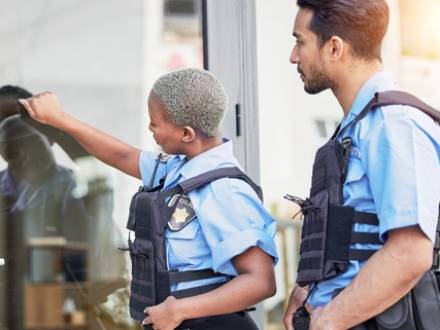Do You Have to Open the Door to Police in Texas?
 If you have ever had a party at your home or been to a rowdy college party at a friend’s home, you may know that feeling of panic and fear when the police knock on the door and demand that the owner let them in. Even when there is nothing illegal going on in the home, it can be a gut-wrenching experience.
If you have ever had a party at your home or been to a rowdy college party at a friend’s home, you may know that feeling of panic and fear when the police knock on the door and demand that the owner let them in. Even when there is nothing illegal going on in the home, it can be a gut-wrenching experience.
Are you sure there is nothing illegal going on? What if someone at the party has a joint in his or her pocket? What if one of the guests is not old enough to drink alcohol? What if the police know about that speeding ticket you forgot to pay? If you do not open the door, will they break it down like they do in the movies?
Since most people do not have a criminal defense attorney on speed dial, you may be uncertain of your rights and whether you legally have to open the door and let the police in. If you did let the police in without a warrant, or if you refused and they promised to come back with a warrant, you need to speak to an experienced Cooke County, IL criminal defense attorney as quickly as possible.
Can the Police Come In If the Owner Refuses?
The United States and Texas Constitutions protect the right of people to be secure in their "persons, houses, papers, and effects" against unreasonable searches. By definition, then, a search must be reasonable. If a search is later deemed to be unreasonable, all the evidence gathered from that search will be considered inadmissible.
The police almost always need a warrant to enter a person’s home without permission. To get that warrant, they must convince a judge, based on probable cause. A search is virtually always unreasonable without a warrant – or permission from the homeowner – with a couple of exceptions. If the police are knocking on the front door, the owner does not have to open the door.
If the owner does open the door and the police ask to come in, the owner should ask whether they have a warrant. If they say they do have a warrant, the owner should ask that they hold it up to a window or slide it under the door. Chatting with the police, even through a screen door, is virtually never a good idea.
The minute a person talks to the police, evidence begins to accumulate that can be used against him or her. The only thing anybody should ever say to the police (other than providing his or her name and address if asked) is, "I will not answer questions without a lawyer present." But what about those "exceptions"? Police without a warrant can enter a home when there are "exigent circumstances."
What Are Exigent Circumstances?
Texas courts detail three situations that can be considered under exigent circumstances:
- To prevent the destruction of evidence or contraband
- To render assistance to a person believed to be in danger
- To protect the officers from a person inside the home believed to be armed and dangerous
So, there are three situations in which an officer can enter a home: the owner gives the police permission to enter, the police have a warrant, or the police believe there are exigent circumstances. Even those who have absolutely nothing to hide should never invite the police into their home unless they have a warrant. If the police try to muscle their way in, never resist or run; people who do often end up injured or dead.
Contact a Denton County, TX Criminal Defense Attorney
If you are the victim of an illegal search and seizure, you need a Cooke County, TX criminal defense attorney who will advocate strongly for your rights. An attorney from Magaña & Van Dyke can ensure you receive a vigorous, thorough defense for any criminal charges you are facing. Call 940-382-1976 to schedule your free consultation. Se Habla Espanol.






